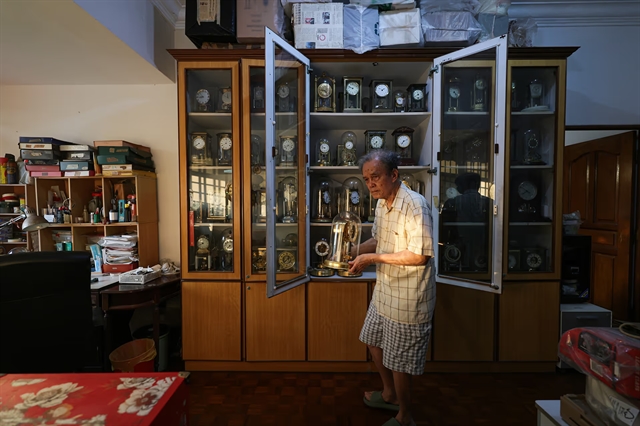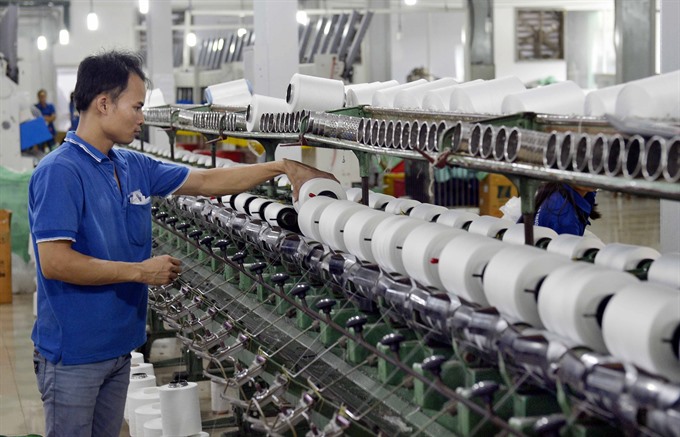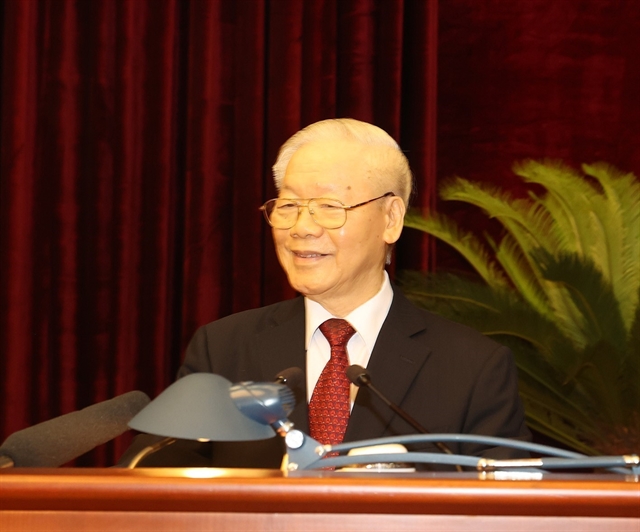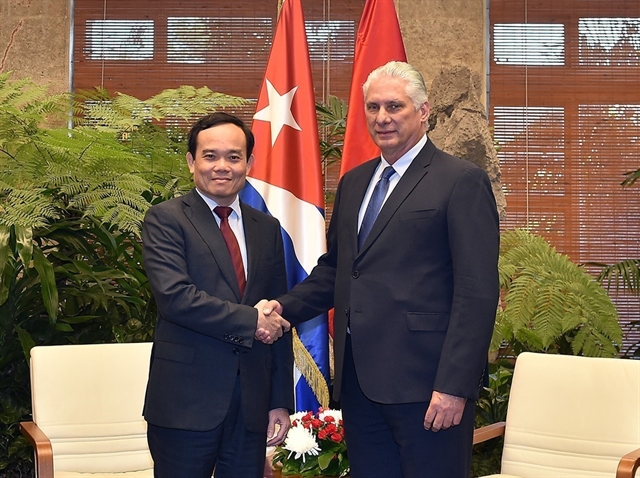 Economy
Economy

On September 21, Trade and Industry Minister Trần Tuấn Anh signed a historic decision cutting 675 business and investment procedures, equivalent to 55.5 per cent of total business conditions under that the ministry (MoIT) had reviewed.
 |
| A sewing production line at Hà Nội’s Trung Dũng Trading and Production Company Limited. The business community hopes that removing business procedures will boost development of the private economic sector. — VNA/VNS Photo Thanh Hà |
by Võ Trí Thành
On September 21, Trade and Industry Minister Trần Tuấn Anh signed a historic decision cutting 675 business and investment procedures, equivalent to 55.5 per cent of total business conditions under that the ministry (MoIT) had reviewed.
State leaders and the business community have hailed the move as the most active and strongest among the country’s ministries in implementing administrative reforms.
Media reports have also applauded the decision and businesses eagerly awaiting its implementation, fully expecting it to diminish difficulties in doing business and make the country more competitive in the international market.
In the World Economic Forum’s 2017-18 global competitiveness index, Việt Nam has advanced five spots to 55th place. This is a significant improvement, clearly demonstrating the country’s efforts in reforming business conditions and improving the investment and business environment.
However, we need some broad, comprehensive insights into this process even as we acknowledge the advances made.
Historic reform
 |
| Võ Trí Thành |
Freedom to do business is a vital feature of a fully functioning market economy. In Việt Nam, the way we think about business freedom has changed a lot for the better since the advent of the Law on Enterprises.
In late 2014, a new Law on Investment and a new Law on Enterprises were introduced, carrying a strong spirit of reforms, increasing flexibility for investors and businesses, cutting business conditions and reducing administrative procedures. The spirit of reforms really encouraged entrepreneurship, and there was a wave of business establishment in the second half of 2015 when the two laws came into effect.
The gains have been maintained thus far. From only around 30,000-40,000 companies being newly established each year in early 2000s, the number has risen to more than 110,000 a year now.
Recently, this reform has been fortified and demonstrated powerfully in two ways.
First, it can be seen in the “negative list approach” by the Government, following which enterprises have freedom to conduct businesses not prohibited by law. Second, the cutting of red tape by ministries has helped cut both entry costs and the cost of doing business.
The MoIT has made a breakthrough decision with its latest abolition of business conditions. Early in September, the Government had asked all ministries to remove about half of more than 4,000 business conditions in total.
As one of 13 ministries and sectors assigned by the Government to simplify procedures and business conditions, MoIT has been a leader in implementing this task.
Now, investors and the business community are awaiting similar actions from other ministries and hoping it will boost development of the private economic sector, not just in the number of enterprises, but also in the quality of operating businesses.
Four issues
Securing the freedom to do business and reducing cost for business operation through administrative reforms are very encouraging but it is not sufficient for private sector development.
First, the Việt Nam 2035 Report by the World Bank and Ministry of Planning and Investment shows that the productivity and competitiveness of Vietnamese private sector is decreasing. The low quality of growth in the private sector can be attributed to many factors, including weak enforcement of property rights, uneven playing field, difficult access to production factors like land, capital and labor, as well as high transaction costs.
All these areas need reforms to ensure sustainable growth of the private sector.
Second, from the business cycle perspective, besides conditions for market entry, Vietnamese companies have demonstrated weak contract enforcement.
The World Bank’s 2016 Doing Business Report ranked Việt Nam 69th out of 190 countries and territories in terms of enforcing contract indicators (which measures the time and cost for resolving a commercial dispute through local courts as well as the quality of judicial processes).
Enforcing contracts in Việt Nam takes 34 procedures and 400 days to complete. Meanwhile, though Việt Nam has a Bankruptcy Law, resolving insolvency is a painstaking process, taking about five years on average to complete, and this is accompanied by a low recovery rate.
More than 110,000 new companies were established in 2016, but the total number of businesses temporarily being suspended, awaiting dissolution and bankruptcy last year was about 73,000.
Third, cutting administrative procedures is not enough to cut the cost of doing business. Costs of compliance with business conditions such as pre-check expenses, inspections and special examination fees and information disclosure also constitute the total expense of doing business.
We want to have fewer investment and business procedures but unclear regulations could push up business costs. Thus, it is essential to promote transparency, and through that, to reinforce trust between the authorities and businesses.
Fourth, deliberation about decreasing business conditions should not be limited to the domestic market. It should also be attached to the process of opening up the economy. In many countries, investment and business procedures can be treated as effective measures to protect domestic businesses.
Heavy business procedures may harm the country’s competitiveness, but when and how much to cut them should be a matter of prudent decision making, one which ensures competition as well as sustainable development of domestic businesses.
* Võ Trí Thành is a senior economist at the Central Institute for Economic Management (CIEM) and a member of the National Financial and Monetary Policy Advisory Council. A doctorate holder in economics from the Australian National University, Thành mainly undertakes research and provides consultation on issues related to macroeconomic policies, trade liberalisation and international economic integration. Other areas of interest include institutional reforms and financial systems.









